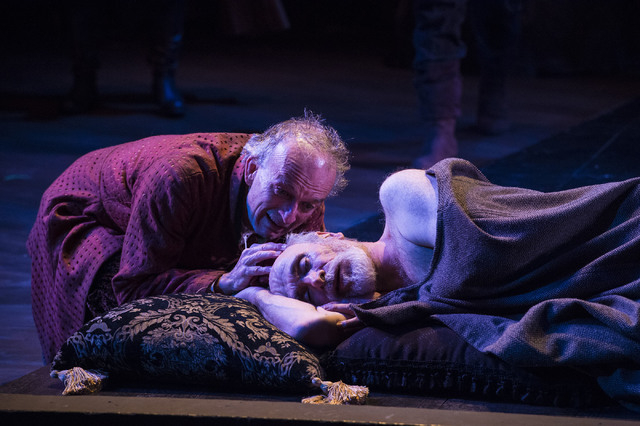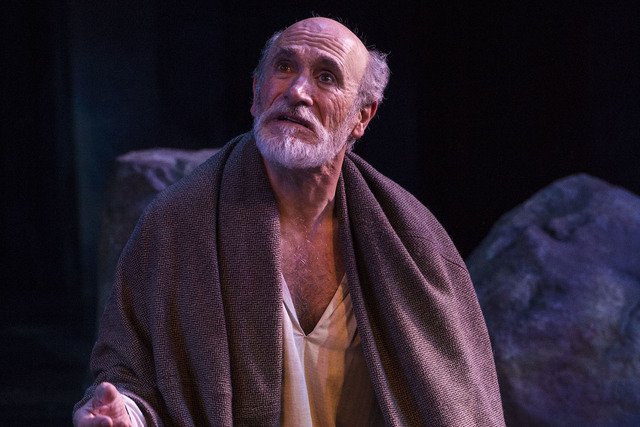‘Lear’ shows struggle to seize the unseizable
Man plans — and God laughs.
Presumably, William Shakespeare never heard this Yiddish proverb.
But, as “King Lear” demonstrates, Shakespeare definitely grasps its meaning. And, thanks to the Utah Shakespeare Festival’s current production, we do too.
After all, who among us hasn’t made a decision, confident of success, only to have things fall apart in disastrous fashion?
That’s exactly what “King Lear’s” title character does — and suffers the consequences.
Alas, innocent people also suffer the consequences, as Lear comes to understand. By the time he does, it’s too late to do anything about it. But such is life.
Which is, naturally, the point — a point this riveting “Lear” makes abundantly clear.
The play takes place in medieval Britain, but it could be anywhere. (Even Westeros, for all you “Game of Thrones” fans.)
Vicki M. Smith’s spare set — punctuated by a few rocks, a barren tree, fence railings that metamorphose into lightning bolts when hit by Donna Ruzika’s subdued lighting — suggests a scorched-earth realm where survival is a challenge, even for a king.
Not that King Lear (a powerhouse Tony Amendola) notices. Not yet, anyway.
He’s too busy contemplating a comfortable retirement. But first, he decides to divide his kingdom.
Initially, he intends to give each of his three daughters a third. Provided each declares her love for him — to his satisfaction.
Lear’s two older offspring, cunning Goneril (Melinda Pfundstein) and scheming Regan (Saren Nofs-Snyder) talk a good game. But Cordelia (a forthright Kelly Rogers), Lear’s youngest and best beloved, can’t easily express such deep feelings.
Her reticence, in the face of her sisters’ glib avowals, prompts Lear to disinherit Cordelia, setting off a chain reaction that causes the once imperious monarch to lose his power, his family — and his mind.
But at least he has friends to share the painful journey, from earls Gloucester (a peppery James Newcomb) and Kent (a stalwart Larry Bull) to his faithful Fool (David Pichette), a wizened fount of rueful wisdom. Their love and loyalty, in turn, enable Lear to discover what he’s always lacked: the ability to see, and feel for, someone other than himself.
Judicious trims make this the swiftest “Lear” I’ve ever experienced, but director Sharon Ott’s stark, streamlined approach clarifies the play’s themes, heightening the power of its truths as Lear weathers a daunting odyssey through “the mystery of things.”
And in Amendola, this “Lear” has a central figure who fully embodies this production’s quietly shattering impact. Whether raging at literal storms or “the tempest in my mind,” his Lear remains heart-wrenchingly human, forever struggling to control events — and people. Even as God laughs.
— CAROL CLING
























